- Description
- Additional information
- Reviews (0)
Description
Description
What is Nano Zinc?
Nano Zinc is a revolutionary new zinc supplement by the Health Factory, which allows maximum levels of bio-availability of this critical nutrient.
After the particles are rendered at nano size and added to distilled water, it is packed in violet glass. With flavour or smell, you’ll feel as if you’re drinking just a very pure water. But as scores of our customers will recount, this supplement packs a mighty punch.
How to Take Nano Zinc?
The supplement is best ingested on an empty stomach, ideally first thing in the morning. Keep the liquid in your mouth for at least 30 seconds for maximum absorption.
Take before meals. Keep in mouth preferably for 1 minute before swallowing. This promotes direct absorption through the mucosa. Do not put the bottle to your mouth, but use the supplied measuring cup, your own cup or a spoon. This can also be a metal spoon. Dark violet glass
When purchasing nano zinc and nano zinc and copper, pay attention to:
- Particle size, preferably below 10 nm.
- Strength, preferably around 20 ppm.
- The ratio between zinc and copper, just like in the body, must always be 10: 1.
- Ask about the zeta potential , this says something about the strength and stability. It must be at least 40 mv.
- Packaging material, preferably dark-violet glass, this preserves best.
- It must be virtually odorless, colorless and tasteless.
- Produced with pure water.
- Shape of the particles, if known. Preferably round / circular.
Dosage
Adults
30ml per day *. This corresponds to 3 tablespoons. If desired, take in the morning, afternoon or evening, before meals.
Nano zinc and nano zinc and copper can be safely taken in relatively high doses: a maximum of 90 ml per day.
Maintenance dose
With long-term use (eg by vegetarians, intensive athletes or the elderly), a maintenance dose of 10 to 20 ml per day is usually sufficient.
Babies and children
0 to 2 years: 5 ml / 1 teaspoon per day.
2 to 6 years: 10 ml / 1 tablespoon to 20 ml / 2 tablespoons per day.
6 to 12 years: 20 ml / 2 tablespoons up to 30 ml / 3 tablespoons per day.
* For acute complaints such as physical or mental trauma, heavy physical strain or infections, the dose may be temporarily increased to 60 or 90 ml per day.
Pregnancy and breastfeeding
30ml per day. In case of uncertainties or use of medication: consult your health adviser, doctor or pharmacist.
What are the Benefits of Nano Zinc?
The well-documented benefits of Zinc will be increased with a supplement you can absorb deeply. These include:
- Strengthening your immune system
- Accelerating the healing of wounds
- May relieve oxidative stress
- May decrease inflammation in the body
- May benefit acne sufferers
Nano Zinc and DNA Repair
Throughout the day, cells are built and broken down for renewal and proper functioning of all tissues, such as skin, organs, muscles and bones. To ensure that this runs smoothly, the instructions for this must be correctly transferred from the DNA. Transcription factors (“overwrite proteins”) copy hereditary information from the DNA to mRNA, which then brings this information to the ribosomes in the cell. There, peptides (building blocks for proteins) are made, which are placed with the information from the DNA in the right order to make the right proteins (gene expression).
Both DNA and transcription factors are zinc dependent. In the event of a zinc deficiency, functions are disrupted and incorrect instructions are issued. In the best case the cell dies, in the worst case the cell starts to divide unrestrained into a cancerous tumor.
DNA damage can fortunately be repaired, but with nutrient deficiencies and aging, more and more damage is left behind. Zinc is one of the most important minerals to keep the DNA in a good condition.
Nano Zinc Supplements for cholesterol
Dyslipidemia, a disruption of blood fats including cholesterol and triglycerides, often appears to be zinc-related, with zinc supplementation improving. Extensive clinical research shows that zinc has a positive influence on the triglycerides (lipids) and cholesterol levels in the blood plasma. Zinc supplementation increases beneficial HDL cholesterol and lowers LDL cholesterol and triglycerides, which in high values are risk factors for cardiovascular disease, metabolic syndrome and diabetes mellitus. With a copper deficiency, elevated levels of cholesterol and triglycerides can occur. Studies show that increased copper intake lowers cholesterol levels.
Nano Zinc Supplements for neurotransmitters
Zinc plays an important role in the regulation of neuro-and-immunotransmitters, with which it plays a significant role in disease processes, depression and behavior (disorders). Zinc is involved in signal transfer, nerve stimulus transfer (in the brain), regulation of dopamine and serotonin and neuronal plasticity: the ability of brain tissue to repair and restructure. For an optimal status of various neurotransmitters, such as GABA, dopamine and norepinephrine, the right balance between zinc and copper is crucial.
An animal study showed that zinc protects against neurotoxicity of lead.
Copper is involved in the synthesis and metabolism of hormones and neurotransmitters.
A copper deficiency can lead to neuropathy.
Zinc and copper in autism and ADHD
An imbalance between zinc and copper is associated with various psychological disorders. Children and adults with complaints such as autism, Alzheimer’s, depression, ADHD, OCD, PTTS or schizophrenia often appear to have a low zinc value, usually combined with a, relatively, too high copper status.
A disturbed zinc / copper status is correlated to the degree of symptoms. Zinc supplementation appears to reduce symptoms and reduce the use of medication.
Although zinc and copper are both important for optimal neurological processes, with these disorders it is important that the zinc status is initially increased before using the combination of both products. Usually 2 to 3 months.
Nano Zinc Supplementation in PMS and PCOS
Studies show that women with PMS or PCOS have significantly lower zinc levels than women without these symptoms.
Zinc supplementation with 2 times the normal daily dose can reduce PMS symptoms and improve the quality of life (compared to a placebo). PCOS-related complaints such as dyslipidemia (disturbed blood fats) and follicle growth disorders often appear to be zinc-related, whereby zinc supplementation can improve.
Zinc and copper in digestion, leaky gut syndrome and other intestinal complaints
Both zinc and copper help in digesting and releasing energy from fats, carbohydrates and proteins. Copper thereby activates the natural energy in the body.
Zinc also contributes to a healthy acid-base balance, which benefits the intestinal flora.
Zinc is important for a healthy intestinal mucosa and the so-called tight junctions; these are proteins that determine which substances pass through the gut or not.
This has a major impact on our overall well-being. A disturbed intestinal barrier function commits an attack on our immune system, which weakens the resistance. Toxic substances can enter the bloodstream that can cause all kinds of complaints such as allergies, rheumatic diseases, skin complaints, headache and fatigue.
Zinc also directly and indirectly inhibits inflammation of the gut that frequently occurs in, for example, Crohn’s disease, ulcerative colitis and IBS.
Note: Zinc in tablet form always enters the intestine, where it can also feed the pathogenic bacteria and other pathogens. Nano zinc can strengthen the intestine from the bloodstream while you can kill the pathogenic bacteria with nano silver.
In such a situation it is important to keep nano zinc in the mouth for a long time before swallowing, while silver must be swallowed directly on an empty stomach to end up in the intestine.
Nano Zinc and Eye Health
Zinc promotes good eye condition, helps (as a spray directly) with dry eyes and prevents macular degeneration. Zinc contributes to good vision because it has an antioxidant function and contributes to building and necessary breakdown of cells. It is necessary for proper functioning of DHA, the fatty acid that is important for proper eye function from the brain.
Nano Zinc Supplementation for muscles and bone building
Zinc is essential for the growth of cells, tissues, muscles and bones. The zinc requirement can increase rapidly with intensive sports practice. Certainly men who exercise and are also sexually active, run the risk of a sentence shortage because a lot of zinc is lost during ejaculation. Zinc is especially well absorbed in combination with protein-rich food.
Because zinc is necessary for cell division and transfer of information from the DNA to all body cells, zinc is also involved in bone metabolism.
Copper is involved in the release of energy, the blood structure and the iron supply, the formation of collagen, and the growth and development of cells and tissues.
Zinc determination and risk factors for deficiency
Determining the body’s zinc status is not easy. The measurement of the zinc level is often done in the blood plasma or serum. This measurement is not always representative of cellular zinc status and only detects the heavier zinc deficiencies at individual level. However, small deficits can already have major consequences for health and are fairly common.
A moderate zinc (and copper) deficiency can:
- Decrease the resistance;
- Slow wound healing and (muscle) growth;
- Give skin complaints;
- Give erection and libido disturbance;
- Increase infections and infection sensitivity;
- Aggravate allergies and ENT complaints;
- Cause diarrhea;
- Reduce fertility and libido;
- Cause abnormalities of nails, skin, mucous membranes and skeleton;
- Limit sexual development and growth;
- Promote night blindness;
- Loss of taste and smell loss or, on the contrary, salty taste in the mouth;
- Disrupt the menstrual cycle;
- Accelerate hair loss;
- Reduce appetite;
- Surgical procedures, operations;
- Infections;
- Flu and cold;
- Intensive sports practice;
- Frequent ejaculation;
- Chronic disorders;
- High copper intake.
An increased need for zinc (and copper) arises among others with:
- Prolonged exposure to environmental toxins;
- Frequent consumption of sugar, alcohol and white flour products;
- Traumatic experiences;
- Growth spits;
- Pregnancy and lactation;
- A vegetarian / vegan diet.
Zinc and copper in relation to food and beverages
A relatively small amount of alcohol already promotes zinc excretion and inhibits the incorporation of zinc into body enzymes. Frequent alcohol consumption can therefore quickly cause a slight zinc deficiency. There is a lot of zinc deficiency among the elderly, because both zinc intake and zinc absorption are often reduced.
A high consumption of convenience foods and vegetarianism and veganism are more likely to lead to a zinc deficiency. Phosphates from soft drinks bind zinc to prevent absorption. White flour products, white rice and white tahini or white almond paste, for example, lack the membranes containing the zinc and other important minerals.
However, zinc from whole grains (whole-grain products, muesli), rice, corn, nuts and legumes, is less well absorbed by the presence of so-called antinutrients in the same skins. The antinutrients bind to the zinc and together leave the body through the bowel movements. Oxalates in certain vegetables, such as rhubarb, spinach and beets, as well as tannins from coffee and tea, also bind zinc and other minerals in this way. Flax seeds, chia seeds and pumpkin seeds do have higher levels of zinc, but people eat relatively less of them. Animal products generally have higher levels of zinc and the zinc present has a higher bioavailability. Nano zinc is properly absorbed at all times.
It has also been found that mercury residues in our food disrupt the zinc metabolism and increase the need for zinc. Mercury residues come from the sweetener HFCS (High Fructose Corn Syrup), which is widely used in lemonade and cake, and from, for example, pesticides on fruit. Children’s brains in particular are extra sensitive to toxic mercury. Tobacco contains a lot of cadmium, which is the counterpart of zinc, so that the zinc supply is used.
Slight to moderate and sometimes also severe zinc deficiency and associated disorders are therefore quite common in practice.
Nutrients, medicines and stimulants that influence the zinc and copper balance:
Zinc
- The contraceptive pill and various other medications can lower the zinc status. This includes ACE inhibitors (captopril, enalapril), corticosteroids, loop diuretics, thiazide diuretics, chlorodalidone, deferoxamine, hormone preparations,
- Valproic acid, cholestyramine, ethambutol, opioids, proton pump inhibitors and H2 receptor antagonists.
- Alcohol, caffeine and cadmium (from tobacco) reduce zinc intake.
- NSAIDs, such as ibuprofen, naproxen, piroxicam and indometacin, can lower zinc status. Regular antibiotics such as cefalexin, penicillamine, quinolones and tetracyclines can also inhibit zinc uptake, as well as anti-HIV medicines (ritonavir, atazanavir). Vice versa, zinc can also reduce the intake of this medication. Therefore, take a zinc supplement at least 2 hours before or after medication.
- Proteins increase zinc absorption.
- Potassium-sparing diuretics can lower the excretion of zinc. Caution is advised with zinc supplementation.
- Zinc can increase insulin sensitivity and insulin release and lower blood glucose. It is possible that the medication of diabetics can be adjusted accordingly.
- Zinc increases the effectiveness of regular antidepressants.
- A zinc deficiency leads to reduced absorption and a reduced metabolism of vitamin A, which is important for healthy skin, growth, cell renewal and good eye function. Zinc also ensures the transport of vitamin A from the blood to the skin.
- When iron, calcium, magnesium and zinc supplements are taken in high doses, they can compete with each other in the intake. Allowing at least a two-hour interval between the intake of the various supplements may be desirable.
- Zinc and DHA have a synergistic effect on neuroprotective activity.
Additional information
Additional information
| Volume | 1 LITRE, 200ML |
|---|
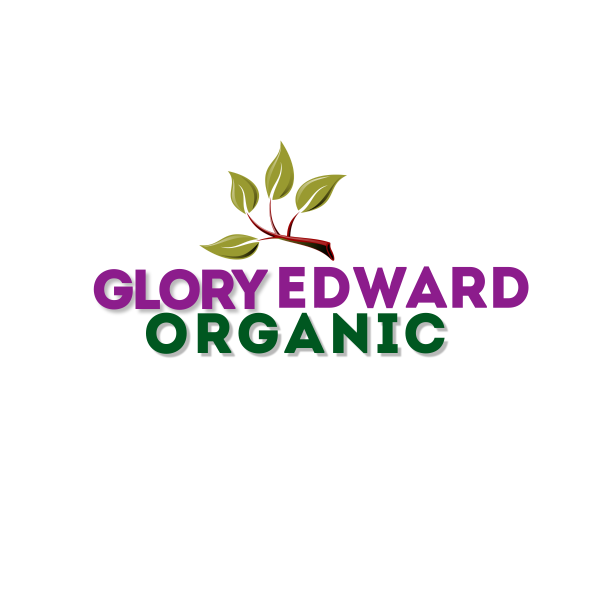






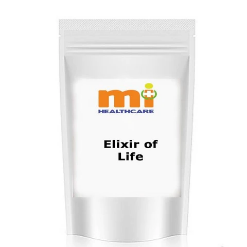
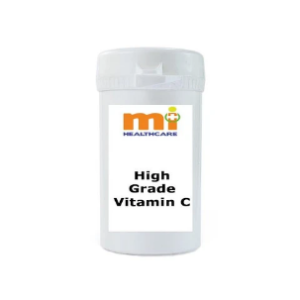
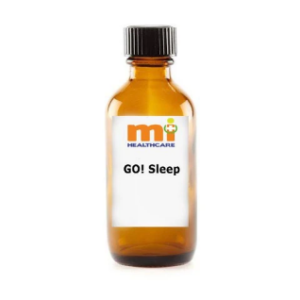
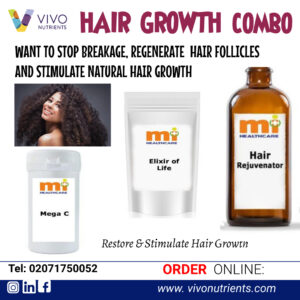
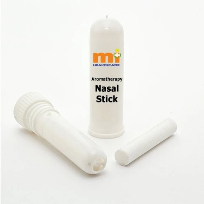

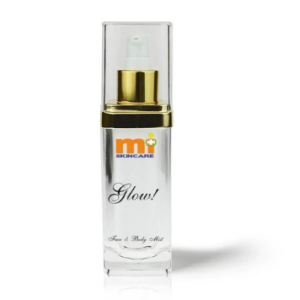
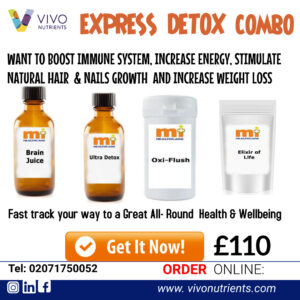
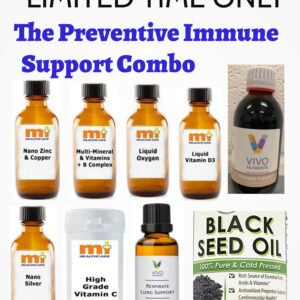
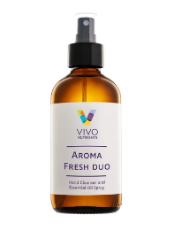
Reviews
There are no reviews yet.